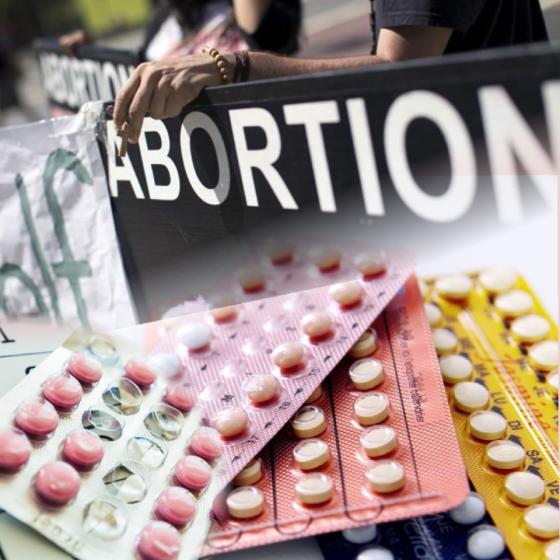Liberia: “Decriminalize Abortion to Reduce Death among Women,” Activists Say

— “Many girls and women have died on a daily basis because they cannot access safe and legal abortion,” says Naomi Tulay-Solanke, the chairperson of the group, Amplifying Rights Network.
Abortion rights activists are calling on the government to decriminalize abortion to ensure that Liberian women have control over their own bodies and reproductive health.
The call by Amplifying Rights Network, a coalition of ten civil society organizations in the field of sexual reproductive health and rights, comes as they claim growing public support for abortion legalization in Liberia.
However, the network, which has lately been advocating to change the status quo, argued that decriminalization would heavily reduce the high death rate among a growing number of Liberian women dying from unsafe and illegal abortions.
“Many girls and women have died on a daily basis because they cannot access safe and legal abortion,” says Naomi Tulay-Solanke, the chairperson of Amplifying Rights Network. “They are left with no other alternative but to use herbs and other harmful substances that lead them to die.”
According to Solanke, when women and girls lack access to safe and legal abortion, they resort to other harmful behaviors, which can result in serious health problems and impair fertility.
No woman, Solanke says, should die not wanting to keep a pregnancy, as it infringes upon their basic human rights to have control over their body.
Solanke and her group’s push for abortion legalization comes as it has been revealed that a record number of more than 38,000 illegal abortions took place in Liberia in 2021.
The number would be higher as more cases abortion in Liberia go unreported.
But figures from a report by Clinton Health Access Initiative and partners shows an induced abortion rate of 30.7 per 1,000 women and a ratio of 229 abortions per 1,000 live births.
The study — the first of its kind on abortion incidence in the country — comes as abortion remains illegal and punishable by a jail term of up to three years in prison, in a country that is deeply religious and vocal in its condemnation of abortion.
Existing law in Liberia allows abortion only in cases of incest, fetal abnormality, danger to the mother’s life, or risk to her physical or mental health.
Medical exemptions require written approval by at least two doctors. In cases of rape or incest, proof must be provided in court.
And so, to address abortion-related complications in the country, the study recommends advanced legal and policy reforms that address the causes of unsafe abortion and unwanted pregnancies.
According to the study, the rate of abortion varies per region, with North-Central having the lowest abortion rate of 6 women per 1,000 and South-Central having the highest 49 women per 1,000.
It also notes that women were receiving care for abortion-related complications that are life-threatening and can potentially result in death.
Abortion in Liberia, according to experts, is primarily driven by unwanted pregnancies as a result of poverty and limited access to family planning.
But worrisomely, experts noted the high rate of unsafe abortions among the poor in the country indicates that there is a standard for the rich and another for the poor and uneducated when it comes to the implementation of the country's law even though it is hard enforceable.
The penal code says women who abort illegally can be jailed for three years. But wealthier and more educated women take advantage of “medical guidelines,” which allow terminations in the interests of a woman’s physical or mental health but require the signatures of multiple doctors.
Issue about legalizing abortion in Liberia is a contentious one that elicits strong opinions from different segments of society.
Some individuals and groups, including many human rights organizations, advocate for the legalization of abortion, arguing that forcing women to continue with unwanted pregnancies puts them at risk of physical harm, psychological trauma, and economic disadvantage.
Abortion rights supporters also note that the country's harsh abortion law has never reduced the number of abortions but rather drives them underground, where women are subjected to unsafe and unsanitary conditions, often leading to injury or death.
By contrast, legalizing abortion would allow women to access safe and medically sound procedures under the care of licensed medical professionals, they argued.
But opponents of abortion, on the other hand, argue that life begins at conception and that the fetus has a right to life that must be protected.
Some religious groups in Liberia also object to abortion on moral or religious grounds, viewing it as an act of murder or a violation of the sanctity of life.
